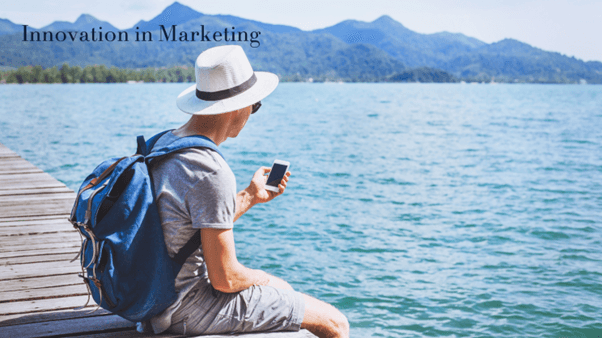For many of us reading this article, the world of digital technology is still relatively new. We can recall a time when airline tickets were purchased in person at a ticket counter and hotels maintained physical ledgers to keep track of guests' arrivals and departures. Asking for directions, whether in our hometown or in a new city, was a common occurrence, and travel was often limited to familiar and established destinations.
For millennials, the rise of digital technology was a gradual and steady progression. Traditional manual bookings gave way to online travel agencies and dynamic pricing, while the internet became the primary source of information for all things travel-related. Today, millennials make up 80% of the travel market, with ages ranging from 27 to 42.
Gen Z, on the other hand, was born with a smartphone in their hands. An exaggeration perhaps, but not too far from the truth. Dubbed the "iGeneration," this segment, consisting of individuals between the ages of 8 and 26, may not have as much disposable income as their older counterparts, but they are quickly catching up.
In order to gain deeper insights into the travel preferences of millennials and Gen Z, THRS conducted a targeted dipstick survey in collaboration with key travel partners across the country. The results closely aligned with global trends, shedding light on the behaviour of these demographics.
Millennials vs Gen Z
Millennials continue to lead the travel industry. However, Gen Z is rapidly expanding and showing immense potential for growth. Globally, high net worth (HNI) individuals and busy millennials are increasingly delegating decision-making responsibilities to their children. As a result, travel decisions and planning now often fall to Gen Z.
Our survey findings indicate that while this trend is still in its early stages in India with millennials taking the lead on travel decisions, it is noteworthy that family holidays with children are predominantly determined by the younger travellers.
The way in which Gen Z consumes information and approaches travel is markedly different from that of millennials. As the influence of Gen Z continues to grow, it is crucial for travel brands to adapt their messaging and offerings to meet the expectations of this younger generation. In the years ahead, companies will need to take a customer-centric approach, tailoring their products and services to cater to the unique needs and preferences of Gen Z travellers.
In a nutshell, millennials have the budget, but Gen Z has the influence.

Gearing up for the iGeneration
Here’s looking at some ways that brands can relook their strategies to cater to the Gen Z and millennial audience.
Travel is Dynamic: Traditional check-in and check-out timings are being replaced by 24-hour check-in options, complemented by the flexibility of anytime breakfast. Moreover, the rise of instagrammable venues, engaging fun and fitness activities, in-room Marshall speakers, and a relaxed dress code all point to a dynamic transformation in the travel experience.
Our survey shows that brands that are embracing this flexible style of hospitality have gained a significant advantage and captured the attention of discerning travellers. A prime example of such hotels is 25hours, which successfully blends the element of fun and surprise with authentic local experiences in their locations in Dubai and Europe.
How are brands effectively identifying the distinct travel requirements of their audience and catering to them?

Travel is New: With less travel under their belt, for the Gen Z every trip is an opportunity to experience something new. Unlike millennials who have transitioned away from the touristy stuff, this generation is not averse to sightseeing, as long as they can get the bang out of their buck and also have some real and honest local experiences during their journey.
Are brands focusing on the destination and experiences, or are they solely promoting themselves in their communication?

Digital FTW: Social media and digital content, whether in the form of influencers or the brand’s official channels is key in booking decision making. A digitally active and engaging brand is not only approachable but is connected with their audience through their travels.
Our survey revealed that roughly 80% of travel decisions are influenced by digital content, with Gen Z being particularly reliant on digital media to get interested in a destination and word-of-mouth to lock-in the decision.
How can brands allow Gen Z to be spontaneous and online during their travel?

Reputation is Key: Reputation is crucial for travel brands to attract Gen Z travellers. This demographic is digitally powered. They are likely to give more importance to reviews and recommendations, than any other generation in the past. They value the opinions of others and place greater importance on online research.
A respondent from our survey aptly summarised it as follows: "Digital influences the destination, while word-of-mouth ensures the final decision." Trip Advisor and other review platforms hold significant influence, ranking highly in shaping travel choices, closely followed by recommendations from friends and family.
How can brands drop the digital veil and be transparent?

Innovation in Marketing: Traditional PR is on the decline. Gen Z is hooked on to their smart devices and are consuming OTT content like never before. What better way than to be where this audience is. The success of the Netflix series “Emily in Paris” led to a surge in tourism to the city. By bridging the gap between the digital and physical worlds, travel brands can better capture the attention of this audience.
Brands have recognised the need to connect with the digitally savvy audience through innovative means. Our survey highlighted several key findings, including a strong emphasis on online content creation, strategic collaborations with luxury brands and influencers, and a notable shift towards offering sustainable experiences and services.
What strategies are travel brands using to leverage new-age media and blur the lines between the online and real world?
Loyalty is earned, not bought.
Gen Z travellers will expect travel brands to go beyond superficial marketing strategies and genuinely connect with them through shared values, personalised experiences, authenticity, and technology-enabled interactions. By earning their loyalty in these ways, brands can forge long-term relationships with this segment and benefit from their advocacy and repeat business.